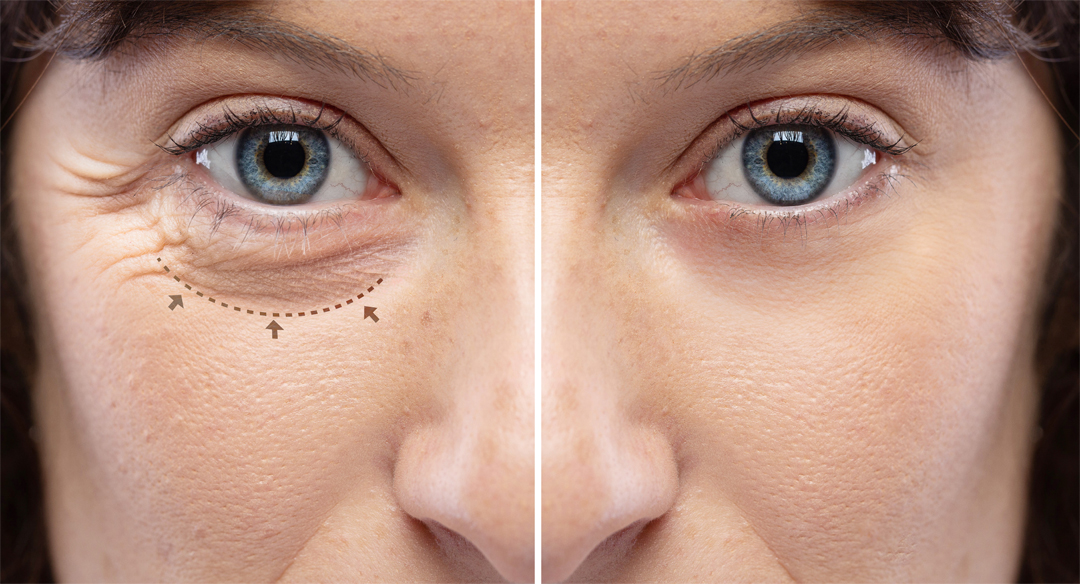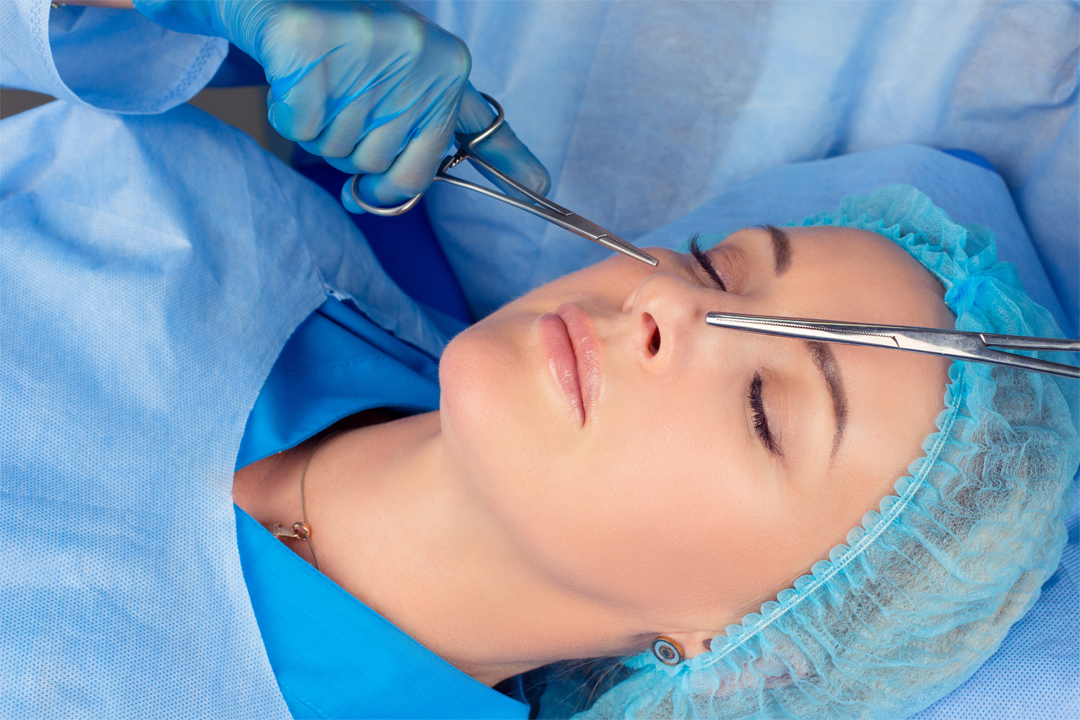 Plastic or cosmetic surgery has become more acceptable under most social groups, with more patients seeking help to correct some of their perceived flaws. In the past, some patients with a genuine need for it were sometimes stigmatized.
Plastic or cosmetic surgery has become more acceptable under most social groups, with more patients seeking help to correct some of their perceived flaws. In the past, some patients with a genuine need for it were sometimes stigmatized.
Fortunately, surgeons have refined their skills over the years, and many new procedures are available for those who want to improve their facial features. Furthermore, updated research allows doctors to restore and enhance function and appearance, according to Johns Hopkins Medicine.
Before an operation, cosmetic surgeons will discuss with their patients to see which procedures are necessary. That said, here are the most common types of facial plastic surgery procedures you can consider:
1. Rhinoplasty
The name of this surgery already hints at what it will be for—a procedure for the nose. Casually, some refer to it as a nose job, which could encompass a variety of specific areas of the nose and the methods to alter them. For instance, types of rhinoplasty include straightening the bridge, increasing or decreasing the nostrils’ size, and reshaping the nose’s tip.
Although rhinoplasty is one of the most commonly performed plastic surgeries, it will still pose some risks just like any other type of surgery, such as infection and bleeding. However, during a consultation, a qualified surgeon will explain everything there is to know about the procedure, so you can make an informed decision for yourself.
2. Blepharoplasty
During this procedure, a plastic surgeon will remove excess fat, skin, or muscle tissue from around the eyes to make your eyes seem more open and less droopy. Many patients who struggle with droopy eyes are usually older women who want to regain their youthful appearance, but there are other reasons patients consider it, such as bags under the eyes and impaired vision.
Eyelid surgery is even ideal for those who are into eye makeup. In fact, the procedure will make it easier for you to put on eyeliner, eyeshadow, or mascara. Plus, you get to apply anti-aging serums or eye creams more evenly after undergoing blepharoplasty.
Before considering any type of plastic surgery, though, you should ask yourself a few questions to make sure you have established a clear purpose. For example, why do you need or want eyelid surgery? Do you want to get rid of loose or excess skin that makes you look older?
3. Brow Lift
As with drooping eyelids, brows could fit into the same category. When you age, your skin becomes less elastic, causing the brows to sag and cover the eyelids. In that case, you can undergo a brow lift since it helps reduce sagging in your upper eyelids. Additionally, it can smooth out wrinkles on your forehead, giving you a youthful appearance.
4. Facelift
Another prevalent choice for patients who want to look younger, a facelift is a procedure that tightens the skin, thus reducing wrinkles. More often than not, patients combine this procedure with other treatments to enhance their appearance.
According to U.S. News, vitamin C is an excellent option to add to a skincare regimen since it will help repair aging skin and create a more even skin tone. After a cosmetic procedure, you should remember to take good care of your skin with additional treatments like vitamin C, so you won’t need to have surgery again.
5. Neck lift
The neckline is an area of the upper body and face that normally shows signs of premature aging, like wrinkles and loose skin. For others, how they look in the mirror affects them more deeply than the visible signs of aging.
According to research, some patients would need additional psychological assistance after surgery to ensure they obtain the best possible outcomes after receiving a neck lift or other type of plastic surgery.
6. Lip augmentation
Procedures involving the lips may include medical and cosmetic reasons. For instance, you can choose to increase the size of your lips, add more volume, or doctors could recommend this surgery for fixing a deformity, like a cleft lip.
Whatever the reason for lip augmentation, a plastic surgeon that’s qualified and reputable should perform the procedure since the operation comes with significant risk of nerve and tissue damage.
7. Chin augmentation
This procedure is often done in combination with a rhinoplasty to make a face look more symmetrical and structurally appealing. Some patients want the size of their chin reduced or increased while others wish to augment the shape or repair a deformity.
8. Non-surgical procedures
Surgeons can offer less invasive procedures like the ones below:
- Botox: The botulism neurotoxinis an injection that can help relax facial muscles and improve skin integrity, making it look years younger. As it could have dangerous side effects, it would be best to consult a plastic surgeon about it before pushing through with the treatment.
- Fillers or plumpers: Fillers, or plumpers as they are more commonly known, are injected below the skin to increase the volume and make the lips or skin of the face seem plumper. As easy as the procedure sounds, it could also be quite destructive to your facial features when performed by someone other than a professional.
- Chemical peel: A chemical peel could assist with perking up the skin’s appearance by ridding it of sun damage like discolorations and more delicate wrinkles. Even if skincare salons and dermatologists offer this service, there’s no harm in asking a plastic surgeon for more information, especially after you’ve had plastic surgery.
- Laser skin resurfacing: Laser skin resurfacing can provide the same benefits for your skin but is slightly more expensive than a chemical peel. If you have a healthy skin and have no previous adverse reactions to such treatment, a plastic surgeon may recommend this procedure before having major facial surgery.
- Radiofrequency mole removal: Radiofrequency energy is a noninvasive way of treating benign moles on the skin’s surface. A specially adapted needle delivers radio frequencies to the specific target area without causing much damage to the surrounding tissue.
- Microdermabrasion: For this procedure, you’ll receive an abradement (light scrubbing) of the facial tissue with aluminum oxide crystals. It will be similar to a deep exfoliation that can help address scars, wrinkles, acne scars, and pigmentation. The treatment can also stimulate the natural formation of collagen that will, over time, give the skin a smoother appearance.
 Bringing it all together
Bringing it all together
With facial plastic surgery, you can look younger and feel more confident. But remember, choosing to undergo a procedure is a major decision. So, ensure that you’re doing it for the right reasons. Once you’re sure of why you want cosmetic surgery, search for a board-certified plastic surgeon who will help you figure out what is needed to look and feel your best.

